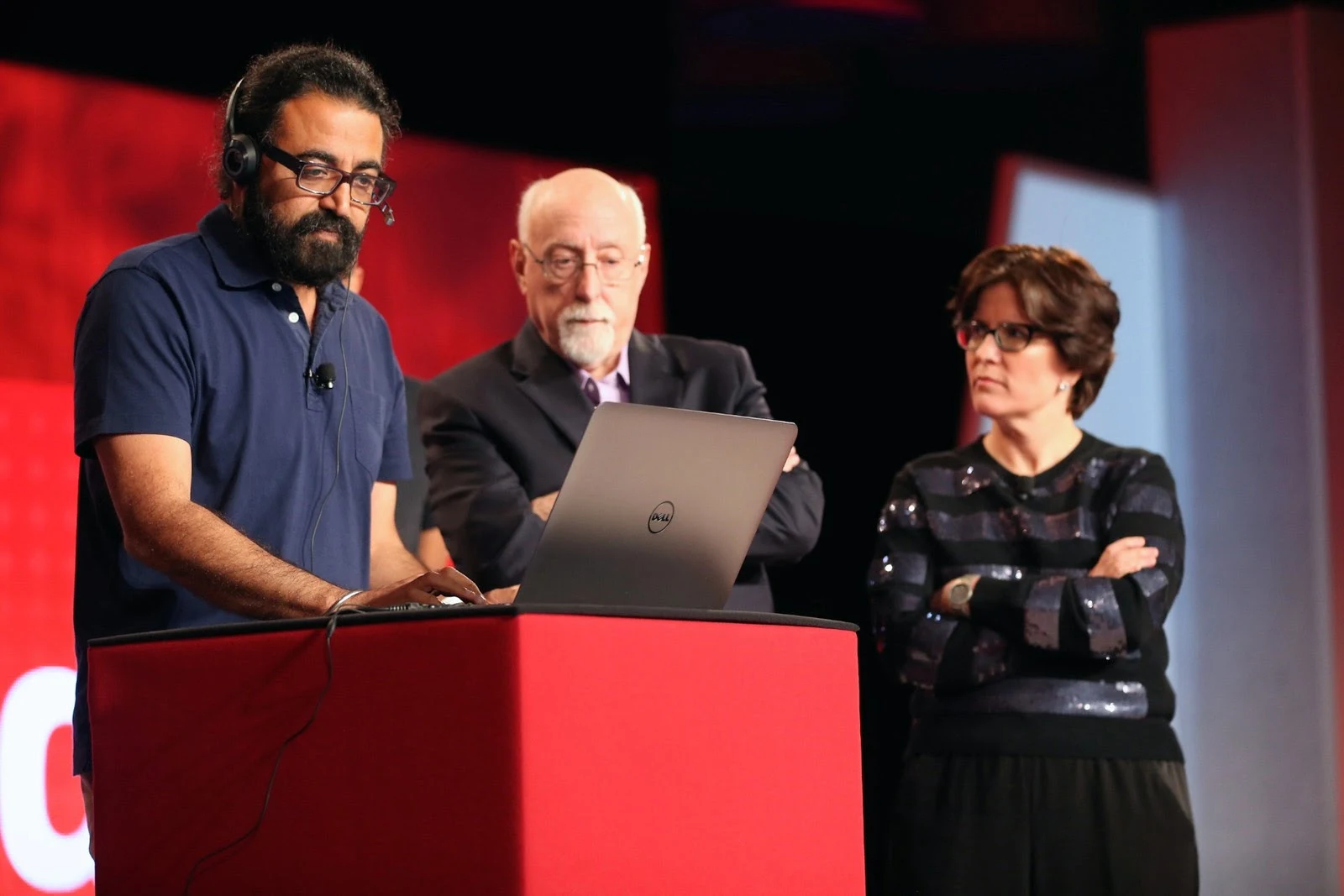 |
| Microsoft CEO Satya Nadella |
Said : Microsoft CEO Satya Nadella in his first public interview since becoming CEO in February. He was at the opening keynote at the Code Conference in Rancho Palos Verdes, California last night.
According to CNET - a leading news-site that tracks all the latest consumer technology breakthroughs and provides latest technology news - Nadella said his aim was to build "something big" than make a large acquisition. He expressed confidence in Microsoft's latest offering - the new 12-inch Surface Pro tablet and strongly felt that it could replace laptops in today's "post, post-PC era."
CNET reported that Nadella, a 22-year Microsoft veteran, was also pressed to talk about the company's missteps during his tenure. "It's an interesting question. Should I bother about it or should I be more concerned about what we're doing now?"
When asked about whether Microsoft was interested in making a big acquisition, Nadella said, "we have to build something big."
Nadella has been actively trying to embrace "the mobile first, cloud world," policy. Microsoft is now offering its software and services on platforms beyond its Windows operating system. For example, a version of Microsoft's best-selling Office business apps was released for Apple's iPad last month to spread their usage. "The intent here is to make sure our services are available on all devices," Nadella said. "There are going to be Windows devices and there are going to be other devices, and we have to make sure our services run on all of them."
Earlier this month, Microsoft unveiled 'Surface Pro 3' - a new category of tablets with larger screen. With a 12” display, it has the power of a laptop in a lightweight, versatile form. It is being promoted as a laptop replacement. It represents, Nadella said, a "journey of improvement" at Microsoft, which lags in the tablet market behind Apple's iPad and devices powered by Google's Android mobile operating system. He called the Surface "promising" and noted, to laughter, that "anything that is not a hit is promising."
Among those new services will be a near real-time language translation technology designed to work with Microsoft's Skype video conferencing service, which boasts more than 300 million connected users. The Skype Translator will support multiple languages and be available as an app for Windows 8 users at first later this year before being released for other platforms.
Microsoft has been working on a translator software for more than a decade. The Comany is in the process of launching a revolutionary speech recognition and translation technology which will similar to the Star Trek vision for a Universal Translator. Gurdeep Pall, Corporate Vice President of Skype and Lync at Microsoft, gave a demonstration showing real time English-German translations to conference attendees. The demo showed near real-time audio translation from English to German and vice versa, combining Skype voice and IM technologies with Microsoft Translator, and neural network-based speech recognition.
Later, in a blog post, he wrote : "Imagine in the very near future technology allowing humans to bridge geographic and language boundaries to connect mind to mind and heart to heart in ways never before possible. The latest offering from Microsoft 'Skype Translator' will enable us enhance productivity and human connection by overcoming language barriers. Skype Translator is a great example of why Microsoft invests in basic research. We’ve invested in speech recognition, automatic translation and machine learning technologies for more than a decade, and now they’re emerging as important components in this more personal computing era."
Gurdeep Pall said : "Today, Skype has more than 300 million connected users each month, and more than 2 billion minutes of conversation a day as Skype breaks down communications barriers by delivering voice and video across a number of devices, from PCs and tablets, to smartphones and TVs. But language barrier has been a blocker to productivity and human connection; Skype Translator helps us overcome this barrier."
















